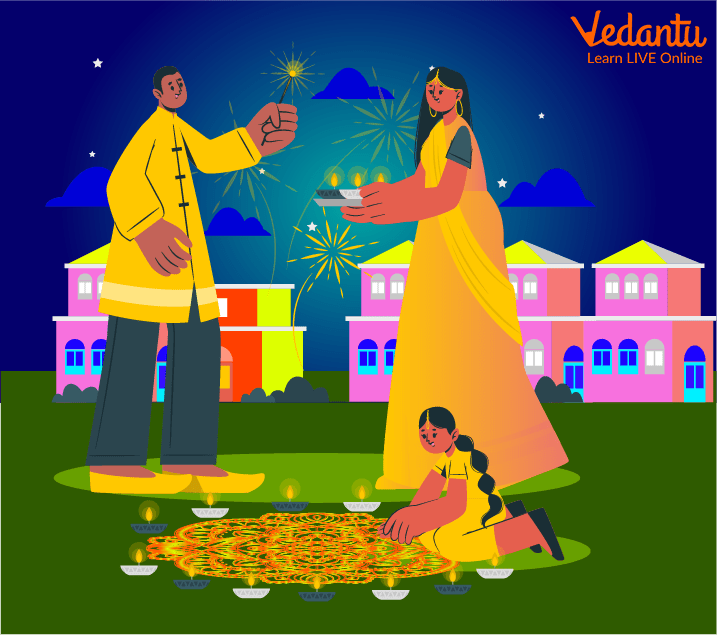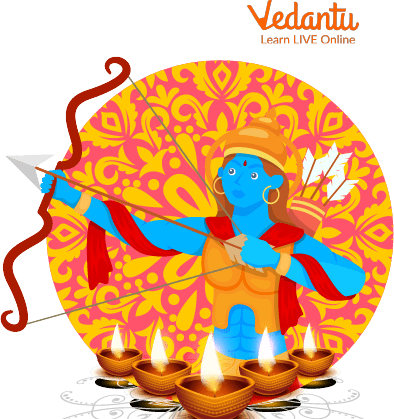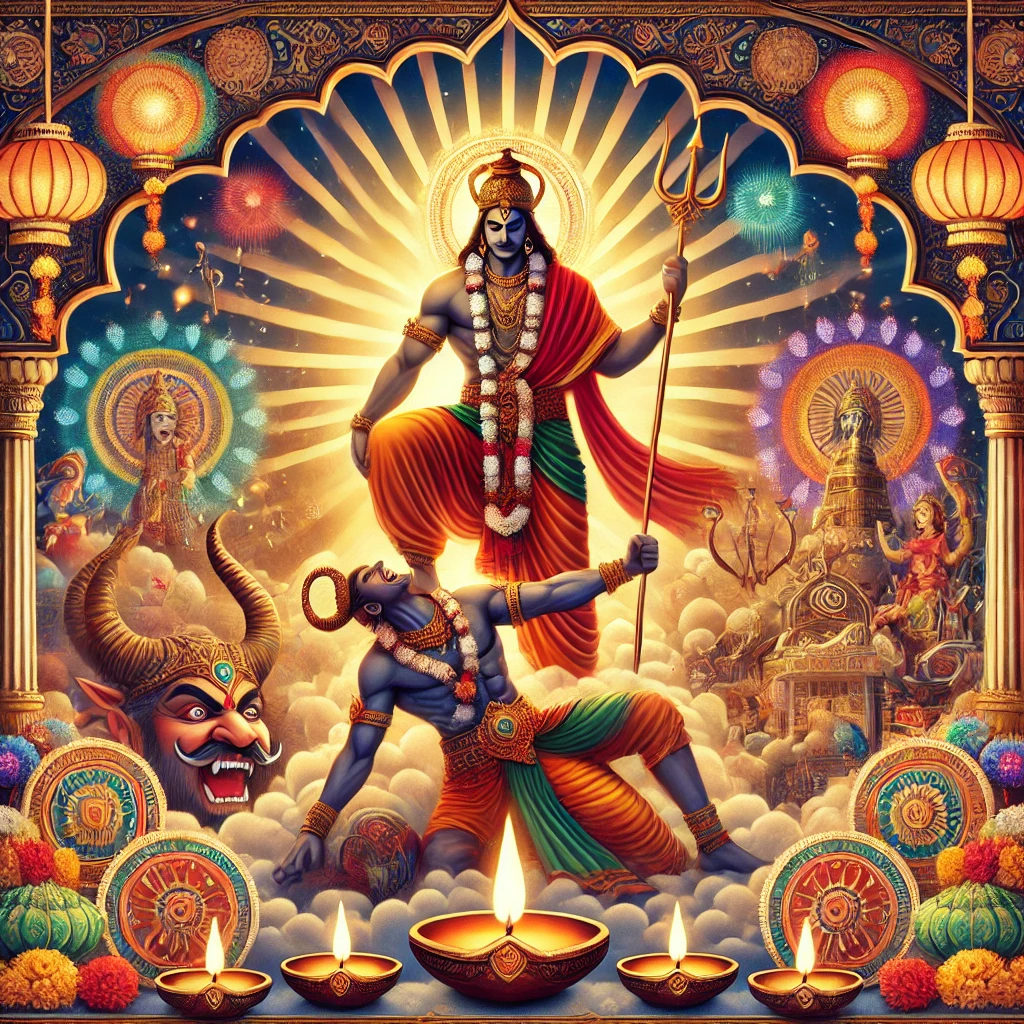Diwali 2025 Festival of Lights Stories Dates And Five Days Significance

What Are the Five Days of Diwali and Their Significance?
Diwali 2025 will shine from October 20 to October 24 bringing families and schools together across India and the world. Known as the Festival of Lights, this five day celebration honours the victory of light over darkness and good over evil with diyas, rangoli, prayers, gifts and sweets.
On this page you will find the five days significance clear dates and short Diwali stories for kids and students in simple English.

Five Days of Diwali - Actual Significance
| Day | Name | Significance |
|---|---|---|
| Day 1 | Dhanteras | Marks the beginning of Diwali. People buy gold, silver, and utensils as it is believed to bring prosperity and good fortune. |
| Day 2 | Naraka Chaturdashi | Symbolises the victory of good over evil. People take oil baths before sunrise to cleanse themselves of impurities and negativity. |
| Day 3 | Lakshmi Puja | The most important day of Diwali. Homes are decorated with diyas, candles, and rangoli to invite Goddess Lakshmi, the goddess of wealth and prosperity. |
| Day 4 | Govardhan Puja | Marks the start of the new year in the Hindu Vikram Samvat calendar. People prepare large varieties of food (Annakut) to offer to God. |
| Day 5 | Bhai Dooj | Dedicated to the bond of brothers and sisters. Sisters pray for their brothers’ long life, and brothers give gifts in return. |

Read About: 5 Magic Days of Diwali
Diwali Story for Kids – Meera’s Little Lamp
On the evening before Diwali, Meera found a tiny clay lamp at the back of a cupboard. It was chipped on one side, shy among the shiny new diyas. You can rest this year, Meera whispered, but the little lamp seemed to ask for one more chance.
She washed it, filled it with oil, and placed a small cotton wick. When Meera lit it, the flame rose steady and bright, stronger than any other lamp on the balcony. Her grandmother smiled. Old things carry old blessings, she said.
As the night deepened, the tiny lamp kept shining. Meera realized that light doesn’t ask to be new, only sincere. The next day, she mended her torn notebooks and promised to care for things she already had. Prosperity, she learned, begins with gratitude.
Choti Diwali Story - The Oil Bath Promise
Before sunrise on Choti Diwali, Aarav’s mother woke him gently. “Oil bath,” she said, rubbing warm coconut oil into his hair. Aarav wrinkled his nose, but the scent was comforting, like a soft hug.
“Today we wash away tiredness and unkind thoughts,” she told him. Aarav thought about the time he laughed when a classmate mispronounced a word. The memory felt heavy, like dust on a window.
After the bath, he felt lighter. At school, he found that classmate and said, “Want to practice together for the assembly?” The boy’s face brightened. That evening, when diyas glittered across the colony, Aarav realized that cleaning the heart is as important as cleaning the home. Some victories are quiet, like choosing kindness over pride.

Know About: How to Celebrate an Eco-Friendly Diwali
Takeaways and Learnings
Diwali teaches students valuable life lessons about choosing positivity over negativity and spreading joy in their communities. The festival emphasizes the importance of cleanliness, both physical and mental, and encourages gratitude for family, friends, and opportunities.
Students also learn about cultural diversity, as Diwali is celebrated differently across regions, promoting understanding and respect for various traditions while maintaining core values of love and unity.


FAQs on Diwali 2025 Festival of Lights Stories Dates And Five Days Significance
1. What is the Diwali Festival of Lights?
Diwali Festival of Lights is one of the most celebrated festivals in India and around the world. It symbolizes the victory of light over darkness and good over evil, bringing people together through prayers, diyas (oil lamps), sweets, and vibrant decorations. Diwali is observed for five joy-filled days, each with special traditions and cultural significance.
2. Why is Diwali celebrated and what does it mean?
Diwali is celebrated to honour the triumph of good over evil and knowledge over ignorance. Its deeper meaning comes from many ancient stories, including:
- The return of Lord Rama to Ayodhya after defeating Ravana
- The birth of Goddess Lakshmi and blessings for prosperity
- The victory of Lord Krishna over Narakasura
- For Jains, it marks Lord Mahavira's enlightenment; for Sikhs, the release of Guru Hargobind.
3. What are the five days of Diwali called?
The five days of Diwali in 2025 are:
- Dhanteras – Buying gold, silver, or utensils for good luck
- Naraka Chaturdashi – Cleansing homes and early morning oil baths
- Lakshmi Puja (Main Diwali Day) – Worshipping Goddess Lakshmi, lighting diyas, and main festivities
- Govardhan Puja – Gratitude, new year in some regions, gift exchanges
- Bhai Dooj – Brothers visit sisters and share festive meals and blessings
4. Who observes Diwali Festival of Lights?
The Diwali Festival of Lights is celebrated mainly by Hindus, but also by Jains, Sikhs, and some Buddhists across India and the world. People of different cultures and backgrounds join in the festivities, making it a truly global and inclusive celebration.
5. What are traditional ways to celebrate Diwali?
Diwali is traditionally celebrated by:
- Cleaning and decorating homes with diyas, candles, and rangoli designs
- Offering prayers to Goddess Lakshmi and Lord Ganesha
- Exchanging sweets, gifts and festive greetings among family and friends
- Lighting fireworks and bursting crackers (many now opt for eco-friendly celebrations)
- Participating in community gatherings and charity
6. What are some inspiring Diwali quotes or slogans?
Here are some popular Diwali quotes and slogans to inspire positivity and unity:
- "May the light of Diwali guide you towards happiness and success."
- "Let us celebrate the triumph of light over darkness, good over evil."
- "Wishing you a sparkling Festival of Lights and endless joy!"
- "Light a lamp of love, blast a chain of sorrow, shoot a rocket of prosperity, and fire a flowerpot of happiness!"
- "Diwali – A festival to ignite hope, love, and dreams for all."
7. When is Diwali Festival of Lights in 2025?
In 2025, Diwali Festival of Lights will be celebrated from October 20 to October 24. The main day, Lakshmi Puja (Diwali night), will fall on October 21, 2025. Dates may vary slightly by region based on local calendars.
8. What is the historical origin of Diwali?
Diwali has roots in several ancient Indian legends:
- North India: Celebrates Lord Rama’s return to Ayodhya after defeating Ravana, when people illuminated the city with oil lamps.
- South India: Marks Lord Krishna’s victory over Narakasura.
- Western India: Symbolizes Lord Vishnu sending King Bali to rule the netherworld.
- Jainism: Honors Lord Mahavira’s attainment of nirvana.
- Sikhism: Commemorates Guru Hargobind Ji's release from captivity.
9. How can I celebrate Diwali safely and sustainably?
Celebrating Diwali safely and sustainably is important for health and the planet:
- Use earthen diyas and LED lights instead of plastic lights
- Avoid or limit firecrackers to reduce pollution and noise
- Create natural rangoli with flowers or eco-friendly colors
- Share sweets and gifts responsibly and minimize waste
- Participate in local Green Diwali or community clean-up drives
10. What values and lessons does Diwali teach?
Diwali teaches important values such as:
- Choosing good over evil in daily life
- Spreading light, joy, and hope to others
- Gratitude and respect for family, teachers, and elders
- Cultural unity and inclusivity by celebrating diversity
- The importance of cleanliness and starting anew
11. How is Diwali celebrated outside India?
Diwali is celebrated worldwide by the Indian diaspora and multicultural communities:
- Public lightings and river parades in cities like London, Toronto, Singapore, Sydney, and New York
- Community Diwali melas (fairs), cultural performances, and fireworks displays
- Schools and cultural groups introduce Diwali crafts, posters, and educational events
- Sharing traditional sweets and festive greetings across communities
12. Can you share simple Diwali activities for students and families?
Here are some easy and meaningful Diwali activities:
- Make paper or clay diyas and decorate your home
- Draw or color Diwali-themed posters and rangoli
- Prepare traditional sweets together and share with neighbors
- Write thank you cards or letters to family members
- Explore Diwali stories, songs, or craft workshops online
- Join school or community Diwali quizzes and art contests




